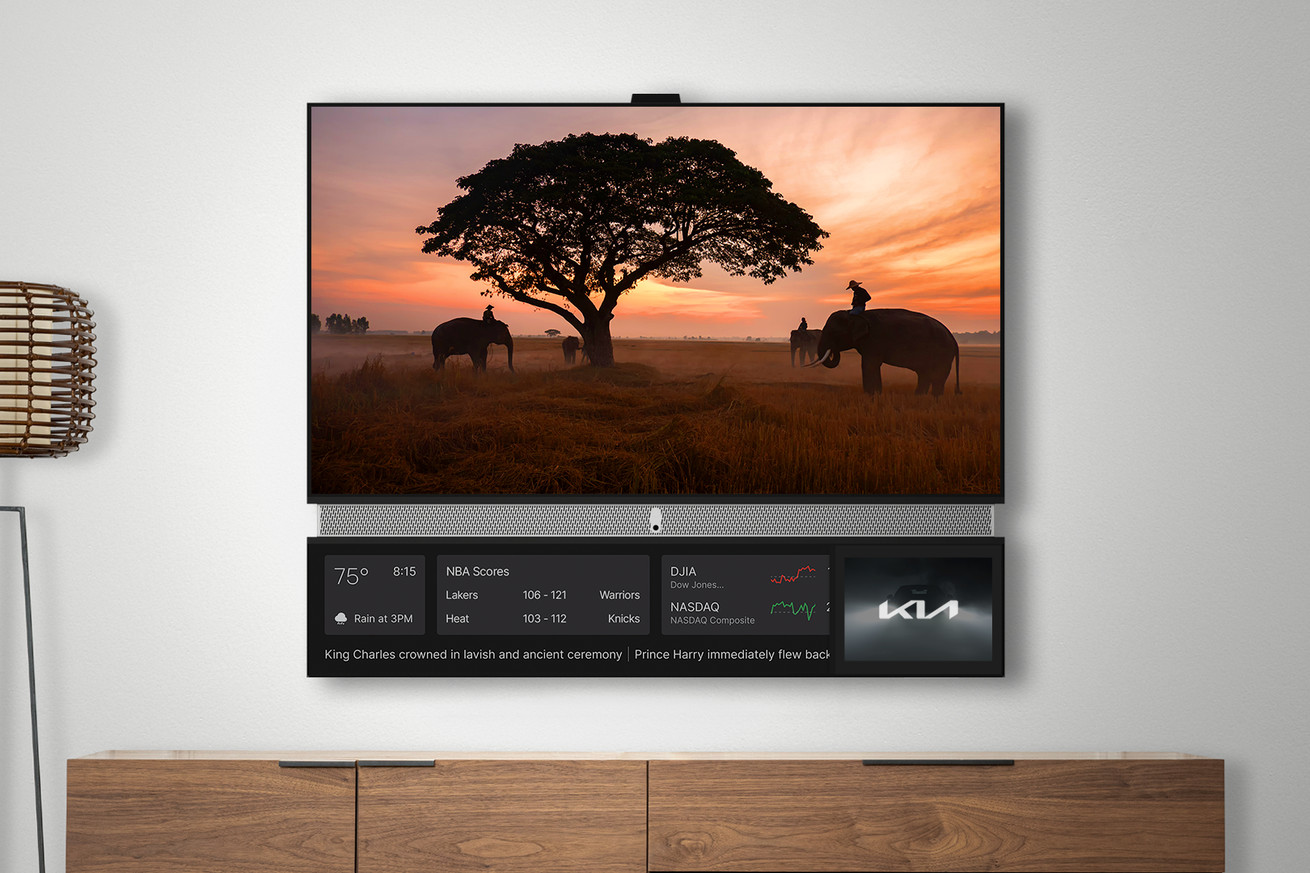
The free TV company briefly wasn’t sure what it should do with data from kids
Telly, the company that will give you a free TV in exchange for showing you persistent advertisements on a second display, made a pretty big slip-up in a now-deleted part of its privacy policy. In a thread on Twitter, reporter Shoshana Wodinsky spotted a line that questioned whether there’s a way to avoid deleting the data it collects on children. Yikes.
The gaffe appeared in the “PersonalData of Children” section (typo is Telly’s). “If we learn we have collectedPersonal Data from a child under 13 years of age, we will delete thatinformation as quickly as possible.” That sounds pretty normal, right? Well, the next line goes full first-person and states: “(I don’t know that this is accurate. Do wehave to say we will delete the information or is there another way aroundthis)?” Telly has since deleted that line.
Dallas Lawrence, Telly’s chief strategy officer, tells The Verge that the questions posed in the policy “appear a bit out of context,” adding that the “issue raised was a two-part technical question related to timing and whether or not it was even possible for us to be in possession of this kind of data.”
He adds that this was part of an “an old draft version” of the privacy policy Telly posted when announcing the product on Monday and says that the “correct and final version” is live on Telly’s site today. You can read Lawrence’s full statement at the bottom of this article.
Telly, which was created by Pluto TV co-founder Ilya Pozin, trades your personal data for a free, 55-inch 4K TV that shows constant ads in a second “Smart Display” that sits beneath the main TV and soundbar. The company is pretty forthcoming about your personal information making it possible for the company to send out free TVs, noting on its website that Telly is “the first TV paid for by brands.”
If you choose to opt out of data collection, Telly’s policy states that you either have to send the TV back or pay an unspecified fee. (A previous version of the policy said it would cost $500). In addition to vacuuming up a trove of data on how you use Telly, the content you watch, and the services you interact with, it will also detect “the physical presence of you and anyother individuals using the TV at any given time” (typo again Telly’s) using its built-in camera. Telly is making 500,000 devices available to reserve now and will start shipping them this summer.
Here’s Lawrence’s statement in full:
When we pushed the website live on Monday morning at 4:00 AM pacific an old draft version of the privacy policy was uploaded. The correct and final version exists on the app today as it has since launch that everyone can see and download as they complete their registration.
The questions raised in the document between our developer team and our privacy legal counsel appear a bit out of context. The issue raised was a two-part technical question related to timing and whether or not it was even possible for us to be in possession of this kind of data.
The team was unclear about how much time we had to delete any data we may inadvertently capture on children under 13. The term “quickly as possible” that was included in the draft language seemed vague and undetermined and needed further clarification from a technical perspective.
Second, and more on point, our developer team also did not believe it was possible that we would actually ever be in a position to capture personal data on those under 13 since the data we collect at the beginning of the process is shared transparently by adults only over the age of 18 who sign up. Minors are not allowed to register.
Because all of the data we collect in our survey (data about brands people like, favorite sports teams household demographics, etc.) is self reported, unlike other TV manufacturers that utilizes third party services to append personal data to the household without compensating the consumer, it was believed the entire section was likely not accurate and we should be able to find another way to address it more clearly.

